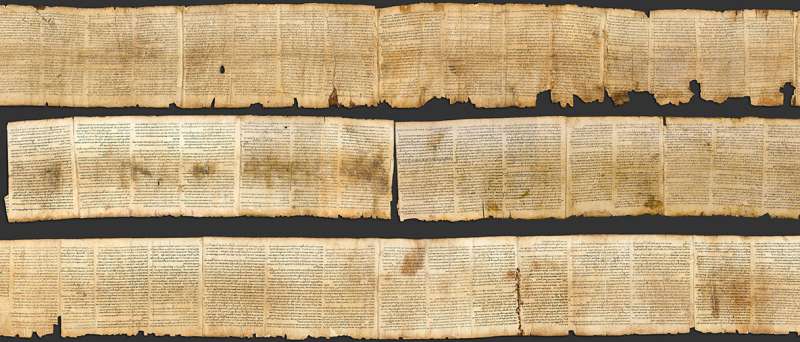Transmission of divine knowledge in the sapiential Thanksgiving Psalms from Qumran

A recently completed doctoral dissertation in Old Testament studies supports a notion gained through prior research, according to which scribes and wisdom teachers had a central role in transmitting divine knowledge in the Second Temple period (approximately 200 BCE-70 CE).
Katri Antin has investigated how the transmission of divine knowledge, or divination, is described in the seven sapiential Thanksgiving Psalms, part of the Dead Sea Scrolls found in the Qumran Caves.
"The Thanksgiving Psalms date back to a time beginning with the books of the prophets in the Old Testament, many of which were born as successive generations of scribes interpreted old prophecies through the prism of their time. At the other extreme are the biblical texts of Qumran, also known as pesharim, and the New Testament where old prophecies and related interpretations have been separated from each other," the doctoral candidate explains.
The dissertation is part of a broader research trend, according to which Jewish prophecy did not end or decline in the Hellenistic period; rather, methods of divination had changed from the time of the Kingdoms of Israel and Judah.
"In part, the Thanksgiving Psalms describe divination in a manner similar to earlier prophetic literature: a divine council is stated as the source of information, or the Holy Spirit is depicted as a divine mediator. Then again, the knowledge transmitted by wisdom teachers does not resemble earlier prophecies; rather, it is teaching typical of wisdom literature: God has ordained the eternal order of things, evidenced through His creation."
Antin's study indicates that the knowledge allegedly revealed by God according to the Thanksgiving Psalms has been derived by interpreting earlier traditions, particularly those pertaining to creation. The phenomenon, known as inspired interpretation, was prevalent in the late Second Temple period (approximately 200 BCE-70 CE).
"The Thanksgiving Psalms demonstrate that also texts other than those that eventually ended up in the Bible were studied and interpreted. For example, Instruction, part of the Dead Sea Scrolls, is a great influence on how the authors of the Thanksgiving Psalms perceived the world order planned by God."
The doctoral candidate finds it possible that the creation, copying and presentation of the Thanksgiving Psalms were means of divination.
"Interpreting earlier traditions requires, of course, substantial learning, making it a privilege of the educated elite, such as scribes and wisdom teachers."
Provided by University of Helsinki





















